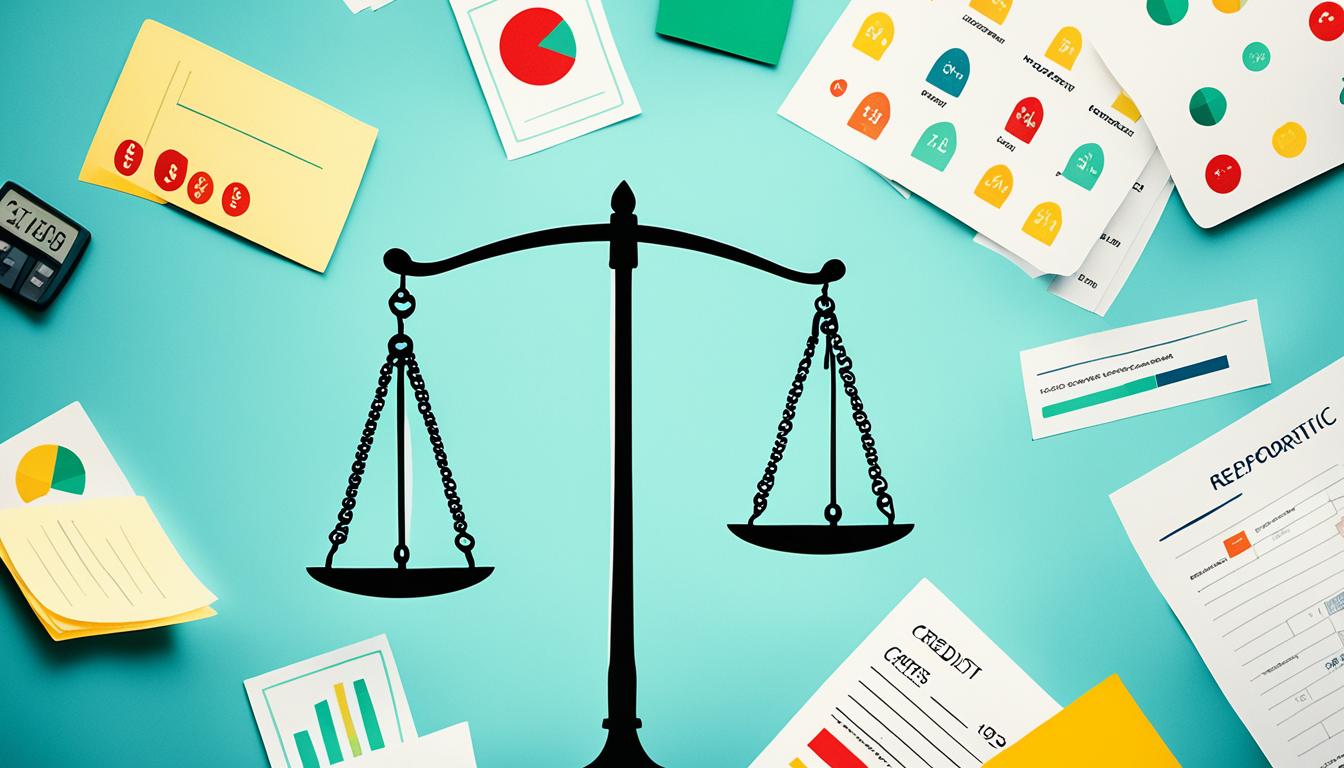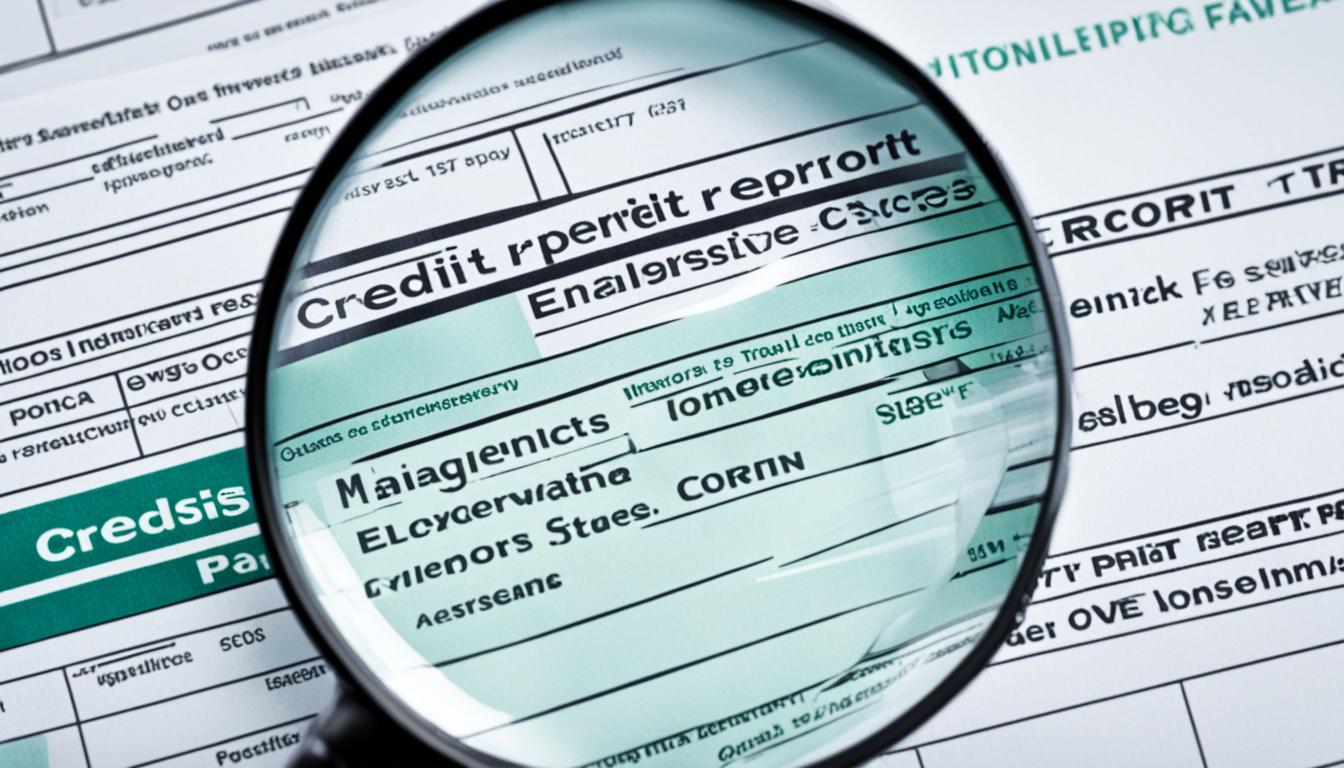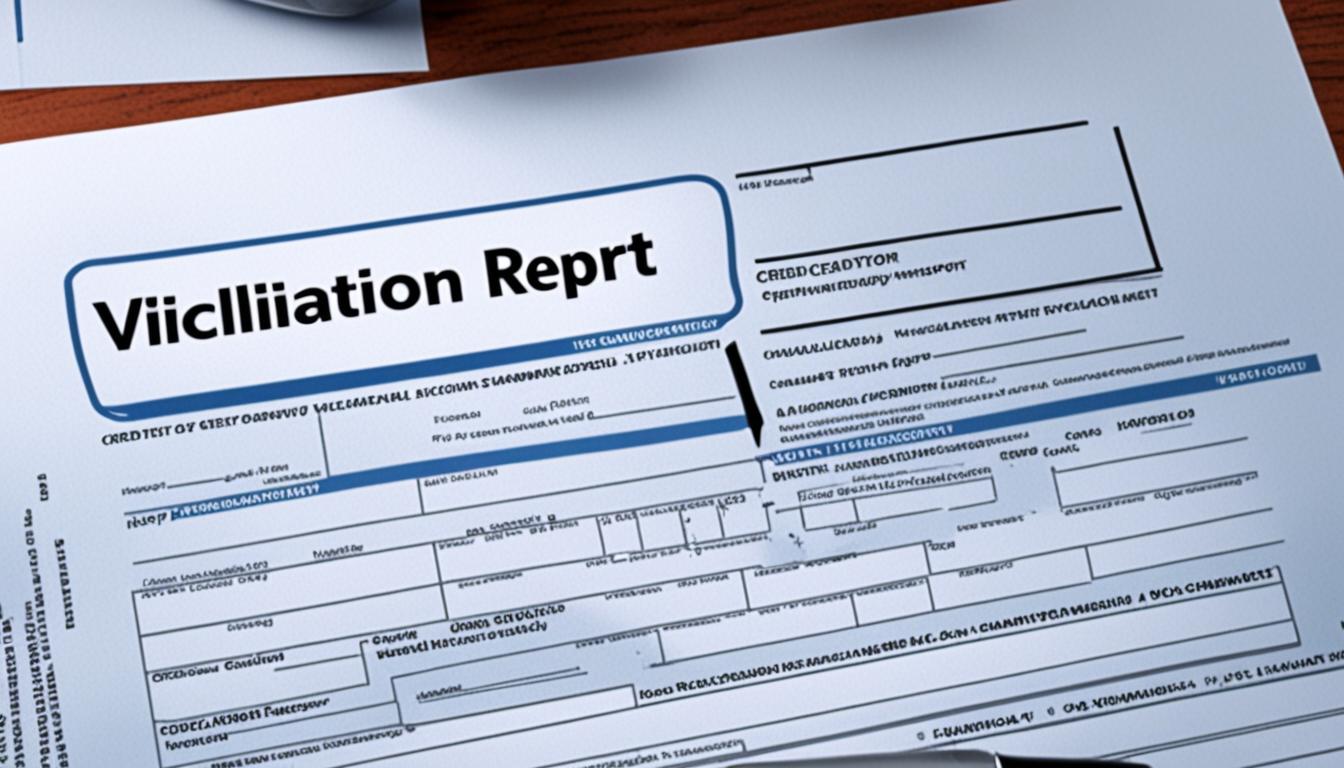The Fair Credit Reporting Act (FCRA) is a law from 1970. Its aim is to control how consumer credit details are gathered and checked. This law is key to making sure consumer data is safe and credit reports are fair.
The FCRA looks at who uses consumer details, like credit bureaus and tenant screeners. They must follow the law, which includes fixing any errors in credit reports.
People who look at credit reports must follow the FCRA as well. They have to tell consumers if something bad is decided because of their report. This lets people know and fix any wrong details in their report.
Over time, the FCRA has been updated to tackle new challenges. This includes keeping records accurate, stopping identity theft, and protecting consumer rights. These changes are made to give people more safeguard and make sure financial dealings are fair and right.
Key Takeaways:
- FCRA manages how consumer credit data is gathered and used.
- It protects consumer info checked by credit bureaus, medical info companies, etc.
- Organizations looking into consumer data must fix any wrong information.
- People must be told if their credit report leads to a bad decision.
- The FCRA is updated regularly to meet new challenges and protect consumer rights.
Understanding the Fair Credit Reporting Act (FCRA)
The Fair Credit Reporting Act (FCRA) is a law that tells credit bureaus how to handle our info. It’s about making sure what they say is true, fair, and private.
Businesses can look at our credit reports when deciding to loan us money or sell us insurance. Even employers might check them before hiring us.
We all get to look at our credit reports once a year for free. This helps us keep an eye on our history. If we find mistakes, we can fix them, protecting our money matters.

The FCRA makes sure credit bureaus keep an eye on how they collect and share our info. If we think something’s wrong in our report, we can ask them to check. This is how they make sure our rights are protected.
The FCRA is all about being fair when it comes to our credit. It gives us the power to see and fix what’s in our credit reports. This way, we can help our financial futures.”
The FCRA’s rules are looked after by the FTC and the CFPB. If the rules are broken, there could be fines or payments to us. This makes sure everyone, from credit bureaus to businesses, plays fair with our credit info.
Knowing the FCRA means we understand our financial rights better. We can stop bad things from happening to our credit. It’s all about making sure our credit is handled with care and correctly.
Rights and Remedies for Consumers Under the FCRA
Under the Fair Credit Reporting Act (FCRA), consumers have important rights. These help protect their finances and ensure accurate credit reports. The FCRA gives consumers the power to manage their credit info. They can also fight for fair treatment when it comes to credit reports. Knowing and using these rights is key. It lets people take charge of their credit details and keep their credit history correct.
Access to Full Credit Report
Consumers have the right to ask for and get their full credit report. They can get this report from agencies that collect consumer info. With the report, people can check if the details about them are true. This is important because it allows consumers to trust the info lenders, insurers, or employers see. If the report is right, it helps people make the best financial choices.
Verification and Notification
The FCRA says people should be told if their credit report affects decisions about them. This includes things like getting credit or a job. Being informed is fair. It lets people check if the information is correct, especially for jobs.
Dispute Process
If someone finds mistakes or missing details on their credit report, they can say something. The FCRA lets people dispute any wrong info. This means they can ask to fix the problem. Making sure the report is correct stops mistakes from hurting people’s chances or choices.
Removal of Outdated Negative Information
Bad credit stuff on a report gets less important over time. The FCRA helps remove old bad info after a while. This keeps things fair for people. They won’t face old financial problems that don’t show who they are today.
Remedies and Consumer Rights Protection
The FCRA also lets people claim for damages if someone breaks these rules. If anyone harms a person’s FCRA rights, the law supports seeking a legal solution. This helps protect everyone’s right and makes sure the law is followed.

The FCRA gives consumers power to deal with their credit info. It makes sure they can check, dispute, and fix problems on their report. By knowing and using these rights, people can manage their credit story. They make the financial world fairer for everyone.
Limitations on Credit Bureau Actions and Consumer Consent
The FCRA sets rules for what credit bureaus can collect. It also limits who can see credit reports and why. This helps keep consumer info private and ensures it’s not used unless needed.

Credit Report Access
Lenders, insurers, and employers need a good reason to check your credit report. They can look at it to see if you’re good for a loan, insurance, or a job. They can’t just look because they want to. Also, you have to say it’s okay.
Prescreened Offers
Credit bureaus share info with companies for special credit and insurance offers. But you can say no to these offers. To stop getting them, just reach out to the credit bureaus directly. This way, you have control over what offers you see.
“The FCRA protects consumers by giving them the power to control who can access their credit information and to limit unsolicited offers. This puts them in charge of their personal financial information.”
Consumer Consent
The FCRA makes sure you have to agree before your credit report is shown to an employer. This means you know who’s checking on your credit for job reasons. It’s all about keeping your private financial stuff safe.
The FCRA lets you decide who can see your credit info. It’s all in your hands. This law aims to keep your financial details secure and prevent them from being used in the wrong way.
Enforcement and Penalties for FCRA Violations
It is vital to enforce the Fair Credit Reporting Act (FCRA) and keep those who harm consumer rights accountable. The Federal Trade Commission (FTC) and the Consumer Financial Protection Bureau (CFPB) watch over the FCRA.
Breaking the FCRA can lead to big fines. These fines go from $100 to $1,000 for each rule broken, depending on how bad and how often the offense happens. Those who break the rules must also pay for the harm they cause.
If someone lies to get information from a credit report, they could face criminal charges. This is a strong warning not to misuse consumer data.
If you think the FCRA has been broken and your rights were hurt, you can tell the CFPB. This helps flag possible mistakes and bring about a solution.
The FCRA makes sure credit bureaus, companies using credit info, and data suppliers follow fair rules. This way, regulators protect consumers and support fair finance.

Conclusion
The Fair Credit Reporting Act (FCRA) is key for consumer safety and accurate credit info. It gives people a way to check their credit reports and fix any wrong info. Also, it lets them remove old bad info from their reports.
The FCRA makes sure credit bureaus, companies, and anyone who uses your credit info follow the rules. This keeps things fair and clear in the finance world. Regulatory bodies are in charge of making sure this act is followed. Anyone who doesn’t follow the FCRA can be fined or face other penalties. Knowing and supporting the FCRA helps keep financial practices fair for everyone. It’s an important part of protecting your rights and keeping trust in the credit system.
Having accurate credit reports matters a lot. It can influence someone’s ability to get a loan, insurance, or a job. The FCRA’s focus on getting the facts right helps prevent unfair treatment. Businesses following the FCRA show they care about doing the right things, which can win them customer trust.
The FCRA is a fundamental part of consumer safety in the U.S. It’s important for both people and companies to know and respect the FCRA. Keeping up with how the FCRA affects us helps maintain a just financial world. By sticking to the principles of the FCRA, we ensure a better financial scene and give people the power to understand their credit info.
FAQ
What is the Fair Credit Reporting Act (FCRA)?
The FCRA is a federal law. It controls how consumers’ credit info is collected. Also, it regulates access to credit reports. The law safeguards information from credit bureaus, medical info companies, and more. It sets rules for these groups.
What rights do consumers have under the FCRA?
Consumers gain many rights under the FCRA. For example, they can get their full credit report. They can check report accuracy for jobs. If report info hurts them, they must be told. Consumers can also fix wrong or incomplete report info. Old negative info can be removed over time.
What limitations are there on credit bureaus and consumer consent?
The FCRA says what credit bureaus can gather. It limits who can see credit reports. Consumers can stop getting some credit or insurance offers. Someone wanting their credit report for a job must agree in writing first.
How are FCRA violations enforced and what are the penalties?
The FTC and CFPB enforce the FCRA. Breaking it can lead to fines, from 0 to
FAQ
What is the Fair Credit Reporting Act (FCRA)?
The FCRA is a federal law. It controls how consumers’ credit info is collected. Also, it regulates access to credit reports. The law safeguards information from credit bureaus, medical info companies, and more. It sets rules for these groups.
What rights do consumers have under the FCRA?
Consumers gain many rights under the FCRA. For example, they can get their full credit report. They can check report accuracy for jobs. If report info hurts them, they must be told. Consumers can also fix wrong or incomplete report info. Old negative info can be removed over time.
What limitations are there on credit bureaus and consumer consent?
The FCRA says what credit bureaus can gather. It limits who can see credit reports. Consumers can stop getting some credit or insurance offers. Someone wanting their credit report for a job must agree in writing first.
How are FCRA violations enforced and what are the penalties?
The FTC and CFPB enforce the FCRA. Breaking it can lead to fines, from $100 to $1,000 per violation. People can also get extra money for damages. If a consumer’s rights are broken, they can complain to the CFPB.
What is the purpose of the FCRA and why is it important?
The FCRA’s main aim is protecting consumer info. It ensures credit reports are fair and accurate. The law gives people the tools to check reports, correct mistakes, and remove old bad info. By following the FCRA, everyone can push for better financial fairness and respect for consumer rights.
,000 per violation. People can also get extra money for damages. If a consumer’s rights are broken, they can complain to the CFPB.
What is the purpose of the FCRA and why is it important?
The FCRA’s main aim is protecting consumer info. It ensures credit reports are fair and accurate. The law gives people the tools to check reports, correct mistakes, and remove old bad info. By following the FCRA, everyone can push for better financial fairness and respect for consumer rights.


